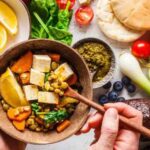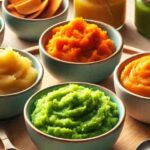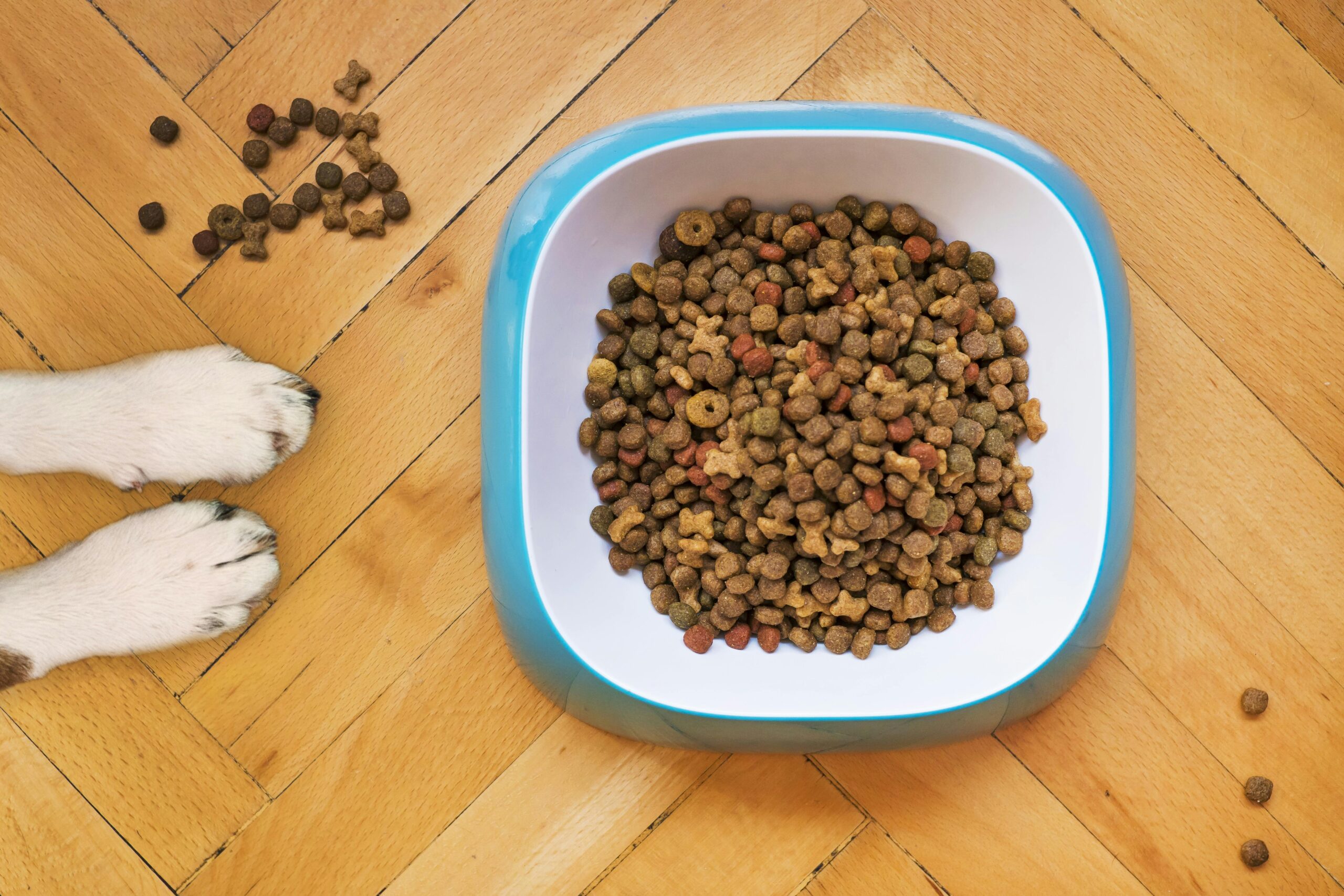Healthy Foods to Eat Everyday: Eating healthy daily is essential for maintaining optimal health, boosting energy, and preventing diseases. In this guide, we’ll explore the best healthy foods to eat every day, how to incorporate them into breakfast, lunch, and dinner, and answer frequently asked questions about daily nutrition.
Why Should You Eat Healthy Every Day?
A balanced diet provides essential nutrients, vitamins, and minerals necessary for bodily functions. Healthy eating supports immune health, reduces the risk of chronic diseases, improves digestion, and enhances mental clarity.
Also Read
Foods That Are Healthy to Eat Every Day
Here are some of the healthiest foods that should be a staple in your diet:
1. Leafy Greens
Leafy greens such as spinach, kale, and Swiss chard are rich in vitamins A, C, and K, along with fiber and antioxidants that support overall health.
2. Whole Grains
Whole grains like quinoa, brown rice, and oats provide essential fiber, helping to regulate digestion and blood sugar levels.
3. Lean Proteins
Include sources like chicken, fish, tofu, and beans to help build and repair tissues while keeping you full longer.
4. Healthy Fats
Avocados, nuts, seeds, and olive oil provide essential fatty acids that improve brain function and heart health.
5. Fruits and Berries
Berries, apples, bananas, and oranges offer essential vitamins, fiber, and antioxidants that support immune function and overall wellness.
6. Dairy or Dairy Alternatives
Greek yogurt, cottage cheese, and plant-based milk are great sources of calcium and probiotics for gut health.
7. Nuts and Seeds
Almonds, walnuts, flaxseeds, and chia seeds are packed with healthy fats, fiber, and essential micronutrients.
How to Eat Healthy Food Every Day
Adopting a healthy eating routine doesn’t have to be complicated. Here are some practical tips:
- Plan your meals: Meal prep ensures you have healthy options available.
- Stay hydrated: Drink plenty of water to aid digestion and overall health.
- Include variety: Mix different food groups for a balanced diet.
- Limit processed foods: Avoid excessive sugar, salt, and unhealthy fats.
- Listen to your body: Eat when hungry and stop when full.
Healthy Foods to Eat Every Day for Breakfast, Lunch, and Dinner
Breakfast
- Oatmeal with fruits and nuts
- Scrambled eggs with spinach and whole-grain toast
- Greek yogurt with berries and flaxseeds
Lunch
- Grilled chicken salad with mixed greens and avocado
- Quinoa bowl with chickpeas, roasted vegetables, and tahini dressing
- Whole-grain wrap with lean turkey, hummus, and spinach
Dinner
- Baked salmon with steamed broccoli and brown rice
- Stir-fried tofu with vegetables and quinoa
- Lentil soup with a side of whole-grain bread
What is the healthiest food you can eat every day?
The healthiest food you can eat every day is one that provides essential nutrients, supports overall well-being, and reduces the risk of chronic diseases. Here are some of the top choices:
- Leafy Greens (e.g., Spinach, Kale, Swiss Chard)
- High in vitamins A, C, and K
- Rich in fiber and antioxidants
- Supports heart and brain health
- Berries (e.g., Blueberries, Strawberries, Raspberries)
- Packed with antioxidants (especially anthocyanins)
- Supports brain function and reduces inflammation
- Low in calories but high in fiber
- Fatty Fish (e.g., Salmon, Sardines, Mackerel)
- High in omega-3 fatty acids (EPA & DHA)
- Supports heart health and reduces inflammation
- Excellent source of high-quality protein
- Nuts and Seeds (e.g., Almonds, Walnuts, Chia Seeds, Flaxseeds)
- Rich in healthy fats, protein, and fiber
- Supports heart and brain health
- Helps regulate blood sugar levels
- Eggs
- High in high-quality protein and essential amino acids
- Contains choline, which supports brain function
- Good source of healthy fats and vitamins
- Greek Yogurt
- High in protein and probiotics
- Supports gut and immune health
- Good source of calcium
- Legumes (e.g., Lentils, Chickpeas, Black Beans)
- High in fiber and plant-based protein
- Helps regulate blood sugar levels
- Supports heart health
- Whole Grains (e.g., Quinoa, Oats, Brown Rice)
- Provides complex carbohydrates and fiber
- Supports digestion and sustained energy levels
- Contains vitamins and minerals like magnesium and iron
- Garlic
- Contains powerful antioxidants and compounds like allicin
- Supports immune function and heart health
- It may help reduce blood pressure
- Dark Chocolate (70%+ Cocoa)
- Rich in antioxidants and flavonoids
- Supports heart health and brain function
- Helps reduce stress and inflammation
Bottom Line
A balanced diet with a variety of these nutrient-dense foods ensures optimal health. The key is moderation and consistency in consuming whole, unprocessed foods.
What should I eat daily for a healthy body?
The healthiest food you can eat every day is one that provides essential nutrients, supports overall well-being, and reduces the risk of chronic diseases. Here are some of the top choices:
1. Leafy Greens (e.g., Spinach, Kale, Swiss Chard)
- High in vitamins A, C, and K
- Rich in fiber and antioxidants
- Supports heart and brain health
2. Berries (e.g., Blueberries, Strawberries, Raspberries)
- Packed with antioxidants (especially anthocyanins)
- Supports brain function and reduces inflammation
- Low in calories but high in fiber
3. Fatty Fish (e.g., Salmon, Sardines, Mackerel)
- High in omega-3 fatty acids (EPA & DHA)
- Supports heart health and reduces inflammation
- Excellent source of high-quality protein
4. Nuts and Seeds (e.g., Almonds, Walnuts, Chia Seeds, Flaxseeds)
- Rich in healthy fats, protein, and fiber
- Supports heart and brain health
- Helps regulate blood sugar levels
5. Eggs
- High in high-quality protein and essential amino acids
- Contains choline, which supports brain function
- Good source of healthy fats and vitamins
6. Greek Yogurt
- High in protein and probiotics
- Supports gut and immune health
- Good source of calcium
7. Legumes (e.g., Lentils, Chickpeas, Black Beans)
- High in fiber and plant-based protein
- Helps regulate blood sugar levels
- Supports heart health
8. Whole Grains (e.g., Quinoa, Oats, Brown Rice)
- Provides complex carbohydrates and fiber
- Supports digestion and sustained energy levels
- Contains vitamins and minerals like magnesium and iron
9. Garlic
- Contains powerful antioxidants and compounds like allicin
- Supports immune function and heart health
- It may help reduce blood pressure
10. Dark Chocolate (70%+ Cocoa)
- Rich in antioxidants and flavonoids
- Supports heart health and brain function
- Helps reduce stress and inflammation
Bottom Line
A balanced diet with a variety of these nutrient-dense foods ensures optimal health. The key is moderation and consistency in consuming whole, unprocessed foods.
To maintain a healthy body, you should aim for a balanced diet that provides essential nutrients, supports overall well-being, and helps prevent diseases. Below is a daily guide to the healthiest foods to eat every day:
1. Protein (Builds Muscles & Repairs Cells)
Include a good source of protein in every meal to maintain muscle mass and support body functions.
- Best Sources:
- Lean Meats (chicken, turkey, grass-fed beef)
- Fatty Fish (salmon, sardines, tuna – rich in omega-3s)
- Eggs (a complete protein with healthy fats)
- Legumes (lentils, chickpeas, black beans – plant-based protein)
- Tofu & Tempeh (great vegetarian options)
2. Healthy Carbohydrates (Energy & Digestion)
Carbs provide the energy needed for daily activities while also supporting gut health.
- Best Sources:
- Whole Grains (quinoa, oats, brown rice, whole wheat bread)
- Starchy Vegetables (sweet potatoes, butternut squash)
- Fruits (bananas, apples, berries – rich in fiber and vitamins)
- Legumes (double as a carb and protein source)
3. Healthy Fats (Brain & Heart Health)
Healthy fats are essential for brain function, hormone production, and reducing inflammation.
- Best Sources:
- Avocados (rich in monounsaturated fats)
- Olive Oil (a heart-healthy fat)
- Nuts & Seeds (almonds, walnuts, flaxseeds, chia seeds)
- Fatty Fish (salmon, mackerel – high in omega-3s)
- Dark Chocolate (70%+ cocoa) (antioxidant-rich treat)
4. Vegetables (Vitamins, Minerals, & Antioxidants)
Aim for at least 5 servings of vegetables per day for optimal health.
- Best Sources:
- Leafy Greens (spinach, kale, Swiss chard – high in vitamins A, C, K)
- Cruciferous Vegetables (broccoli, cauliflower, brussel sprouts – detoxifying & anti-inflammatory)
- Bell Peppers & Carrots (rich in vitamin C & beta-carotene)
- Garlic & Onions (support immune function)
5. Fruits (Antioxidants & Natural Sugars)
Eat 2–3 servings of fruit per day for essential vitamins and natural energy.
- Best Sources:
- Berries (blueberries, strawberries – high in antioxidants)
- Citrus Fruits (oranges, lemons – rich in vitamin C)
- Apples & Pears (fiber-rich for digestion)
- Bananas (great for potassium & quick energy)
6. Dairy or Dairy Alternatives (Calcium & Probiotics)
Dairy helps support bone health and gut microbiome balance.
- Best Sources:
- Greek Yogurt (high in protein & probiotics)
- Kefir (fermented dairy for gut health)
- Cheese (in moderation) (provides calcium & protein)
- Plant-based alternatives (almond, oat, or soy milk fortified with calcium)
7. Hydration (Water & Herbal Teas)
- Drink at least 8–10 glasses of water daily
- Herbal teas (green tea, chamomile, ginger tea) support digestion and relaxation
- Limit sugary drinks & alcohol
8. Superfoods for Extra Health Benefits
- Turmeric (anti-inflammatory)
- Ginger (aids digestion & immunity)
- Chia Seeds & Flaxseeds (fiber & omega-3s)
- Dark Chocolate (in moderation) (improves heart & brain function)
Example Daily Meal Plan
Breakfast
🥑 Scrambled eggs with spinach + whole grain toast + a glass of water or green tea
Lunch
🐟 Grilled salmon with quinoa + steamed broccoli + mixed greens with olive oil
Snack
🍓 Greek yogurt with berries and almonds
Dinner
🍲 Lentil soup with a side of roasted sweet potatoes and sautéed kale
Dessert (Optional, Healthy Choice!)
🍫 A small piece of dark chocolate + herbal tea
Final Tips for a Healthy Body
✅ Eat whole, unprocessed foods
✅ Balance protein, carbs, and fats in every meal
✅ Prioritize fiber for digestion and blood sugar control
✅ Stay hydrated and limit processed foods
✅ Practice mindful eating & portion control
What are the 10 most healthy foods?
The 10 healthiest foods are nutrient-dense, packed with essential vitamins, minerals, and antioxidants, and support overall well-being. Here’s a list of the top 10 healthiest foods you should eat regularly:
- Leafy Greens (Spinach, Kale, Swiss Chard, Collard Greens)
- High in vitamins A, C, and K
- Rich in antioxidants and fiber
- Supports heart, brain, and eye health
How to Eat:
🥗 Add to salads, smoothies or sauté with olive oil
- Berries (Blueberries, Strawberries, Raspberries, Blackberries)
- High in antioxidants (anthocyanins)
- Supports brain function and reduces inflammation
- Low in calories but high in fiber
How to Eat:
🍓 Add to yogurt, oatmeal, or smoothies
- Fatty Fish (Salmon, Sardines, Mackerel)
- High in omega-3 fatty acids (EPA & DHA)
- Supports heart and brain health
- Great source of high-quality protein
How to Eat:
🐟 Grill, bake or add to salads
- Nuts and Seeds (Almonds, Walnuts, Chia Seeds, Flaxseeds)
- Rich in healthy fats, fiber, and protein
- Supports heart and brain health
- Helps regulate blood sugar levels
How to Eat:
🥜 Snack on raw nuts, add to oatmeal or blend into smoothies
- Eggs
- High in high-quality protein and essential amino acids
- Contains choline, which supports brain function
- Good source of healthy fats and vitamins
How to Eat:
🍳 Boil, scramble, or make an omelet
- Greek Yogurt
- High in protein and probiotics
- Supports gut and immune health
- Good source of calcium
How to Eat:
🥣 Add honey, berries, or nuts for a healthy snack
- Legumes (Lentils, Chickpeas, Black Beans)
- High in fiber and plant-based protein
- Helps regulate blood sugar levels
- Supports heart health
How to Eat:
🍛 Add to soups, stews, or salads
- Whole Grains (Quinoa, Oats, Brown Rice)
- Provides complex carbohydrates and fiber
- Supports digestion and sustained energy levels
- Contains vitamins and minerals like magnesium and iron
How to Eat:
🍚 Use in bowls, porridges, or side dishes
- Garlic
- Contains powerful antioxidants and allicin (an anti-inflammatory compound)
- Supports immune function and heart health
- It may help reduce blood pressure
How to Eat:
🧄 Add fresh garlic to soups, stir-fries, and roasted vegetables
- Dark Chocolate (70%+ Cocoa)
- Rich in antioxidants and flavonoids
- Supports heart health and brain function
- Helps reduce stress and inflammation
How to Eat:
🍫 Eat a small square daily or add to smoothies
Final Thoughts
Eating a variety of these nutrient-dense foods regularly will improve overall health, boost energy, and prevent chronic diseases. Want meal ideas using these superfoods? Let me know! 😊
Healthy foods to eat for everyday breakfast, lunch, and dinner
Eating healthy foods every day for breakfast, lunch, and dinner ensures you get all the essential nutrients your body needs. Below is a daily meal guide with the best foods to include in each meal.
Healthy Breakfast Foods
Start your day with a balanced meal that includes protein, healthy fats, fiber, and complex carbs to sustain energy levels.
Best Foods for Breakfast:
✅ Eggs – High in protein and choline for brain health
✅ Oatmeal – Rich in fiber, supports digestion, and stabilizes blood sugar
✅ Greek Yogurt – High in probiotics for gut health
✅ Berries – Antioxidant-rich for immune support
✅ Avocado – Healthy fats for brain function
✅ Whole-Grain Toast – Provides fiber and sustained energy
✅ Nuts & Seeds (Almonds, Chia, Flaxseeds) – Omega-3s and protein
✅ Smoothies (with Spinach, Banana, and Protein Powder) – Nutrient-packed option
Healthy Breakfast Ideas:
🥑 Avocado Toast with Poached Egg + a handful of berries
🥣 Oatmeal with Chia Seeds, Nuts, & Banana
🍳 Scrambled Eggs with Spinach & Whole-Grain Toast
🥤 Berry & Greek Yogurt Smoothie with Almond Butter
🥜 Greek Yogurt with Granola & Mixed Nuts
🥗 Healthy Lunch Foods
A healthy lunch should include lean protein, whole grains, healthy fats, and vegetables to keep you full and energized.
Best Foods for Lunch:
✅ Lean Proteins (Chicken, Turkey, Salmon, Tofu, Lentils) – Supports muscle growth and satiety
✅ Whole Grains (Brown Rice, Quinoa, Whole Wheat Bread) – Provides fiber and sustained energy
✅ Leafy Greens (Spinach, Kale, Arugula) – Rich in vitamins and antioxidants
✅ Healthy Fats (Avocados, Nuts, Olive Oil) – support heart health
✅ Colorful Vegetables (Bell Peppers, Carrots, Cucumbers, Tomatoes) – Loaded with vitamins and minerals
Healthy Lunch Ideas:
🥗 Grilled Chicken Salad with Mixed Greens, Avocado, & Olive Oil Dressing
🍛 Quinoa Bowl with Roasted Sweet Potatoes, Black Beans, & Tofu
🥪 Whole-Grain Turkey & Avocado Sandwich with a Side of Carrot Sticks
🍲 Lentil Soup with a Whole-Grain Roll & a Side of Steamed Broccoli
🐟 Baked Salmon with Brown Rice & Steamed Vegetables
Healthy Dinner Foods
Dinner should be light yet nutritious, with a good balance of protein, fiber, and healthy fats to support digestion and muscle recovery.
Best Foods for Dinner:
✅ Fatty Fish (Salmon, Sardines, Tuna) – Rich in omega-3s for heart health
✅ Lean Proteins (Chicken, Tofu, Beans, Turkey, Lentils) – Essential for muscle recovery
✅ Whole Grains (Brown Rice, Quinoa, Barley) – Provides sustained energy
✅ Cruciferous Vegetables (Broccoli, Cauliflower, brussel sprouts) – Helps detoxify the body
✅ Garlic & Onion – Supports immune function
✅ Healthy Fats (Olive Oil, Avocado, Nuts) – reduce inflammation
Healthy Dinner Ideas:
🐟 Baked Salmon with Quinoa & Steamed Asparagus
🍲 Vegetable Stir-Fry with Tofu & Brown Rice
🍛 Grilled Chicken with Roasted Brussels Sprouts & Sweet Potatoes
🥣 Homemade Lentil & Vegetable Soup with Whole-Grain Bread
🥗 Greek Salad with Feta, Chickpeas, and Olive Oil Dressing
Healthy Snack Options (Between Meals)
If you need a snack, choose something nutritious that won’t spike blood sugar.
🥜 Handful of Almonds & Walnuts
🍎 Apple Slices with Peanut Butter
🥒 Carrot & Cucumber Sticks with Hummus
🍫 A Small Square of Dark Chocolate (70%+ Cocoa)
🥛 Greek Yogurt with Berries
Final Tips for Eating Healthy Every Day
✅ Include Protein, Healthy Fats, and Fiber in Every Meal
✅ Eat a Variety of Fruits and Vegetables
✅ Stay Hydrated with Water & Herbal Teas
✅ Limit Processed & Sugary Foods
✅ Practice Portion Control and Mindful Eating
FAQ
How to Eat Healthy Food Every Day?
Plan meals, eat a variety of whole foods, and avoid processed foods. Focus on nutrient-dense options for each meal.
What Are Healthy Foods to Eat Every Day?
Leafy greens, whole grains, lean proteins, healthy fats, nuts, seeds, and fresh fruits should be consumed daily for optimal health.
What Foods to Eat Every Day to Be Healthy?
Eating a mix of fiber-rich foods, protein, and healthy fats ensures balanced nutrition and supports overall well-being.
What Is Healthy Food to Eat Every Day?
Healthy food consists of unprocessed, natural ingredients like vegetables, whole grains, and lean proteins that provide essential nutrients.
A List of Healthy Foods to Eat Every Day
- Spinach, kale, and other leafy greens
- Brown rice, oats, and quinoa
- Chicken, fish, tofu, and beans
- Avocados, olive oil, nuts, and seeds
- Apples, bananas, berries, and oranges
- Greek yogurt and plant-based dairy alternatives
Conclusion
Eating healthy foods every day is a powerful way to enhance your health, prevent diseases, and maintain energy levels. By incorporating these nutritious foods into your daily routine, you can achieve a balanced diet and long-term well-being.









